
The General Certificate of Secondary Education (GCSE) is an academic qualification in a range of subjects taken in England, Wales and Northern Ireland, having been introduced in September 1986 and its first exams taken in 1988. State schools in Scotland use the Scottish Qualifications Certificate instead. However private schools in Scotland often choose to follow the English GCSE system.
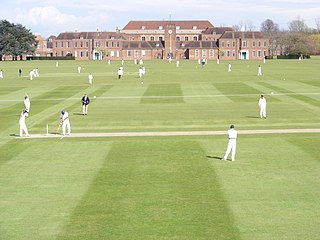
Private schools in the United Kingdom are schools that require fees for admission and enrollment. Some have financial endowments, most are governed by a board of governors, and are owned by a mixture of corporations, trusts and private individuals. They are independent of many of the regulations and conditions that apply to state-funded schools. For example, the schools do not have to follow the National Curriculum, although many such schools do.
The eleven-plus (11+) is a standardised examination administered to some students in England and Northern Ireland in their last year of primary education, which governs admission to grammar schools and other secondary schools which use academic selection. The name derives from the age group for secondary entry: 11–12 years.

Westminster Under School is a independent preparatory school for boys aged 7 to 13, attached to Westminster School in London.
A cram school is a specialized school that trains its students to achieve particular goals, most commonly to pass the entrance examinations of high schools or universities. The English name is derived from the slang term cramming, meaning to study a large amount of material in a short period of time. The word "crammer" may be used to refer to the school or to an individual teacher who assists a student in cramming.

AQA Education, trading as AQA, is an awarding body in England, Wales and Northern Ireland. It compiles specifications and holds examinations in various subjects at GCSE, AS and A Level and offers vocational qualifications. AQA is a registered charity and independent of the government. However, its qualifications and exam syllabi are regulated by the Government of the United Kingdom, which is the regulator for the public examinations system in England and Wales.
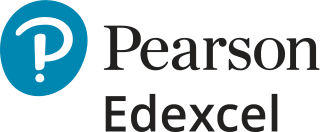
Edexcel is a British multinational education and examination body formed in 1996 and wholly owned by Pearson plc since 2005. It is the only privately owned examination board in the United Kingdom. Its name is a portmanteau term combining the words education and excellence.
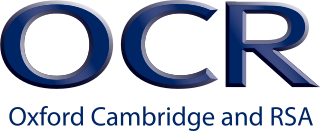
Oxford, Cambridge and RSA Examinations (OCR) is an examination board that sets examinations and awards qualifications. It is one of England, Wales and Northern Ireland's five main examination boards.

WJEC is an examination board providing examinations, professional development and educational resources to schools and colleges in Wales, England and Northern Ireland under its own name and the Eduqas brand.

The International General Certificate of Secondary Education (IGCSE) is an English language based secondary qualification similar to the GCSE and is recognised in the United Kingdom as being equivalent to the GCSE for the purposes of recognising prior attainment. It was developed by Cambridge Assessment International Education. The examination boards Edexcel, Learning Resource Network (LRN), and Oxford AQA also offer their own versions of International GCSEs. Students normally begin studying the syllabus at the beginning of Year 10 and take the test at the end of Year 11. However, in some international schools, students can begin studying the syllabus at the beginning of Year 9 and take the test at the end of Year 10.
The Certificate of Secondary Education (CSE) was a subject-specific qualification family awarded in both academic and vocational fields in England, Wales and Northern Ireland. CSE examinations were held in the years 1965 to 1987. This qualification should not be confused with the Indian Certificate of Secondary Education which is a school-leaving qualification in India. Also, in some African and former British colonial countries there is a qualification named the Certificate of Secondary Education based on the original and former British variant. Also, the CSE should not be confused with the African qualification CSEE.

Dame Allan's Schools is a collection of private day schools in Fenham, in the west end of Newcastle upon Tyne, England. It comprises a coeducational junior school, single-sex senior schools and a coeducational sixth form. Founded in 1705 as a charity, the original schools are two of the oldest schools in the city.
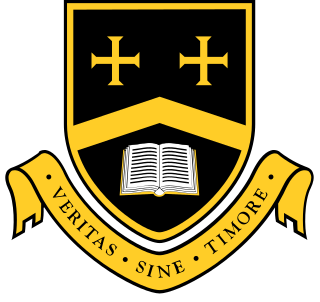
Caterham School is an independent co-educational day and boarding school located in Caterham, Surrey and a member of the Headmasters' and Headmistresses' Conference.
Common Entrance Examinations are taken by independent school pupils in the UK as part of the selective admissions process at age 13, though ten independent schools do select at 11 using different test papers. They are set by the Independent Schools Examinations Board. Most of the secondary schools that use Common Entrance for admission are "public schools"; most of the schools that routinely prepare their pupils for Common Entrance are preparatory schools. Both kinds of schools are normally fee-paying, that is, they are particular kinds of private schools. The examination papers are prepared by the board, but the scripts are marked by the schools concerned; and all other aspects of the admissions process are handled independently by each school.
Stephen Spurr is an independent consultant and expert in UK and international education. From 2014 to August 2019, he was the Global Education Director of Inspired, an international education network of over 60 premium K-12 schools on five continents. A British teacher, classicist, and academic, from 2005 to 2014 he was the Head Master of Westminster School.
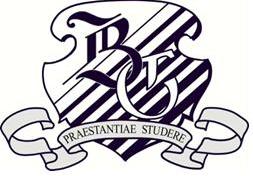
Bexley Grammar School is a co-educational grammar school with academy status in Welling, in the London Borough of Bexley, UK. It takes boys and girls aged 11–18 who have passed the eleven plus exam.

Mander Portman Woodward is a group of British independent schools, with branches in London, Birmingham and Cambridge, offering GCSE and A-Level courses.

All Hallows School is a non-selective co-educational prep school that provides day and boarding facilities. A Christian School in the Catholic tradition the school accepts children from all faiths and none. The school is located a mile east of Cranmore village, near the town of Frome, Somerset, in the West of England. An ISI inspection in July 2014 rated all areas of the school as 'Excellent', the highest possible rating.
The General Certificate of Education (GCE) Advanced Level, or A level, is a main school leaving qualification in England, Wales, Northern Ireland, the Channel Islands and the Isle of Man. It is available as an alternative qualification in other countries.
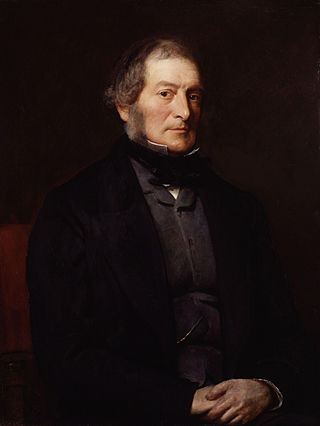
Science education in England is generally regulated at all levels for assessments that are England's, from 'primary' to 'tertiary' (university). Below university level, science education is the responsibility of three bodies: the Department for Education, Ofqual and the QAA, but at university level, science education is regulated by various professional bodies, and the Bologna Process via the QAA. The QAA also regulates science education for some qualifications that are not university degrees via various qualification boards, but not content for GCSEs, and GCE AS and A levels. Ofqual on the other hand regulates science education for GCSEs and AS/A levels, as well as all other qualifications, except those covered by the QAA, also via qualification boards.













